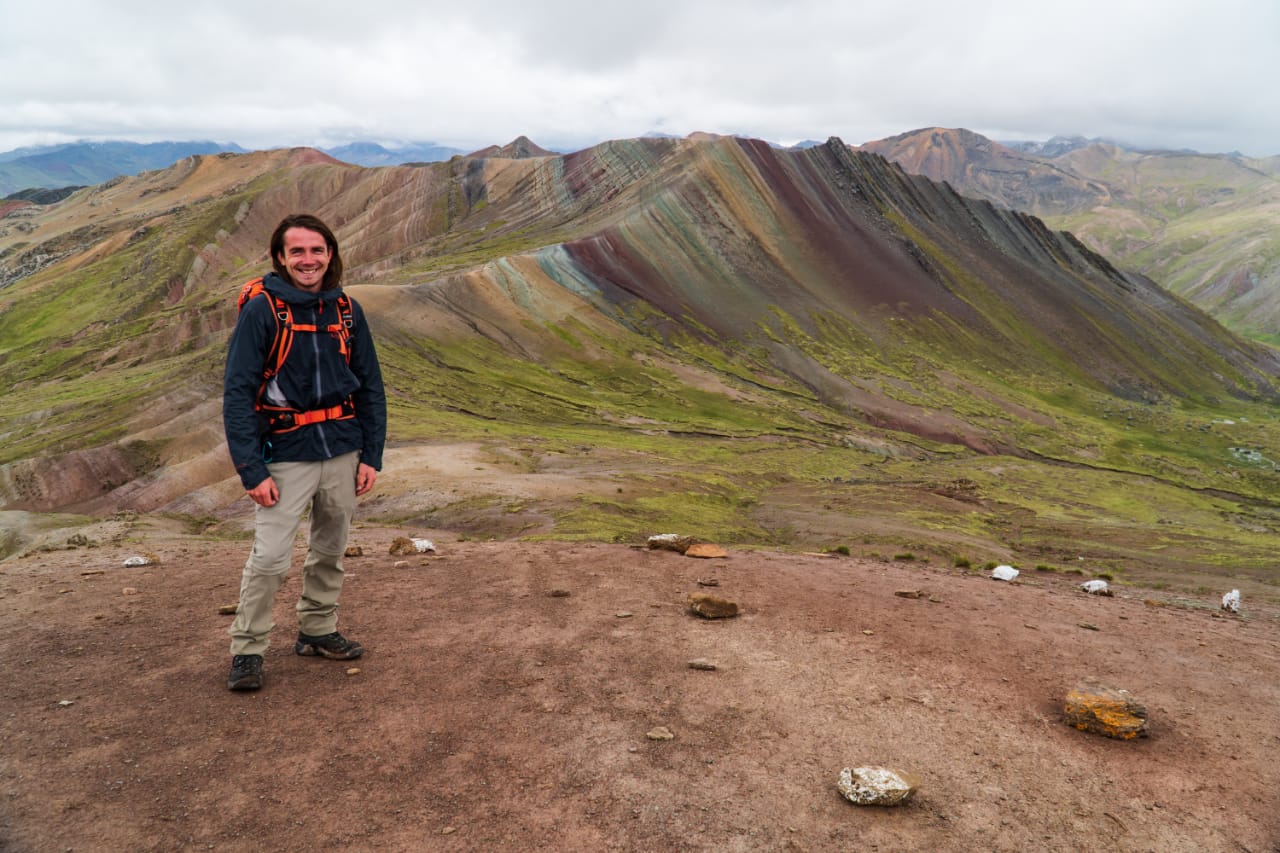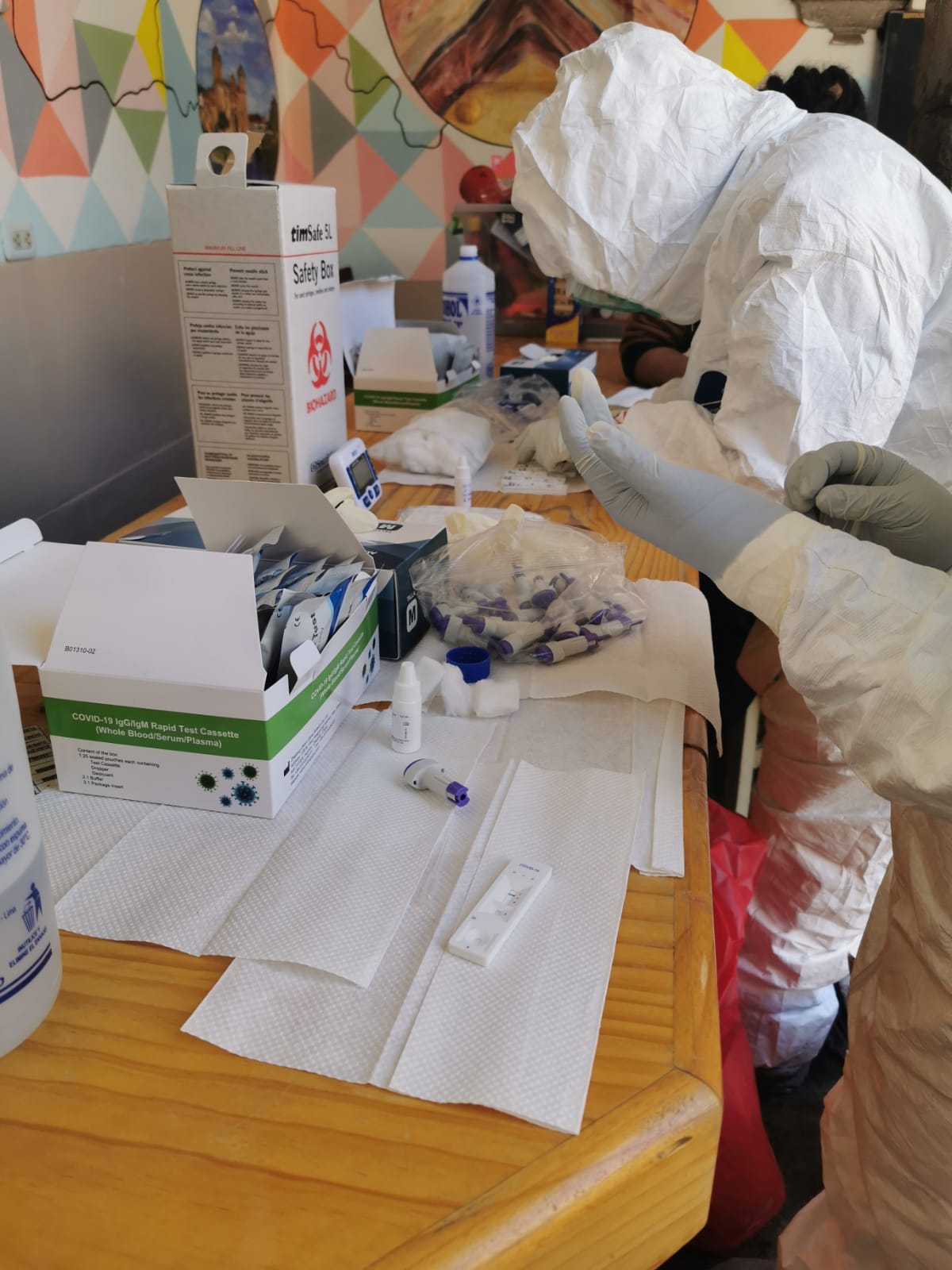‘We’ve been abandoned by our own embassy’: Britons denied repatriation from Peru to London amid coronavirus chaos
The 11 UK citizens left in Peru say they are ‘terrified’ they won’t be put on a flight before the country officially shuts its borders on 22 April

Your support helps us to tell the story
From reproductive rights to climate change to Big Tech, The Independent is on the ground when the story is developing. Whether it's investigating the financials of Elon Musk's pro-Trump PAC or producing our latest documentary, 'The A Word', which shines a light on the American women fighting for reproductive rights, we know how important it is to parse out the facts from the messaging.
At such a critical moment in US history, we need reporters on the ground. Your donation allows us to keep sending journalists to speak to both sides of the story.
The Independent is trusted by Americans across the entire political spectrum. And unlike many other quality news outlets, we choose not to lock Americans out of our reporting and analysis with paywalls. We believe quality journalism should be available to everyone, paid for by those who can afford it.
Your support makes all the difference.By the time Chris Ramsay was finally told he would not be on the last-scheduled British Airways repatriation flight from Lima, Peru, to London on Wednesday, he had already been awake with no food or water for hours, informed that a military plane due to fly him to the capital from neighbouring Cusco had taken off without him, then that it had turned around to come and get him, and finally that it had left again – still without him on it.
Ramsay, from Salisbury, isn’t alone. He’s one of 11 British nationals still stuck in Peru due to the coronavirus lockdown, who were all barred from catching this chartered flight – confirmed by the British Embassy in Peru, via its Twitter account yesterday, to be the final one taking citizens directly from Lima to London.
So far, not one of those trapped have been told when or even if they will now return to the UK in the near future.
“We’re all so used to being ignored by the Embassy and being let down now that it hardly came as a surprise when they finally confirmed we weren’t flying back,” Ramsay told The Independent on what was day 32 of his isolation in Peru.
“We’d all woken up, packed our bags and were stood in the queue to get on a bus to the airport in Cusco when we were told that the military plane had taken off without us for a second time and that we wouldn’t be going home after all.”
On Tuesday the group had been cleared to fly by the Peruvian Ministry of Health, despite four of them – including Ramsay – testing positive for coronavirus in the most recent round of blood tests.
Kate Harrison, the British Ambassador in Peru, posted on her own Twitter account last night that the change of plan was due to “new medical information relating to positive molecular testing of part of the group”.
Ramsay said neither him nor anyone else in the group had been told “what that actually means”. When approached by The Independent, Harrison declined to comment.
When asked about the situation, an FCO spokesperson said: “We can confirm that, unfortunately, a dozen passengers were refused access to the military flight from Cusco to Lima that was due to join up with the flight to London. The Peruvian authorities denied them boarding following health screening.
“We recognise this is deeply disappointing for these passengers and a worrying time. We will continue to do all we can to support them and other British nationals who remain in Peru.”
Harrison also made the announcement yesterday, again via her Twitter, that she was now back in the UK “to spend time with her three young children”.
Through further investigation by The Independent, it has become clear that it is not just Harrison who has now returned to the UK but other members of her team too – leaving those still stuck, Ramsay said, with even fewer people “on the ground in Peru” to help them.
Andrew Soper, the British Ambassador for Venezuela, has temporarily taken over Harrison’s post in Lima. He made an announcement on the Embassy’s Twitter account yesterday, stating those still stuck in Peru were his “number one priority”.
According to Ramsay: “The worst part about being told we weren’t going home was that the call came from the only member of Kate Harrison’s team who’d actually been replying to us since all this began – and it was to say that it wouldn’t be us getting flown home, but them instead.”
He said he, along with the others, felt “abandoned” by the British Embassy at this point.

“There’s no other word for it. We’ve literally been abandoned by our own f****** Embassy,” he said, before apologising for raising his voice.
He also said that “after immense pressure” from the 11 Brits, the Embassy staff sent the group a supposedly 24-hour hotline for any queries they had. It was only later, he said, when the group tried to ring the number, that they realised it was UK-registered and not one they could call from their mobiles without risking “astronomical phone charges”.
Ramsay added that the back-and-forth between the Embassy and the group, as well as the flitting between plans, had taken a toll on his mental health.
“We understand that this is a complicated situation, but to be messed around like this – with the high of thinking you’re going home, and then the real low when that’s taken away and you’re told your seats are being taken by the people supposed to be helping you – it’s hard not to feel helpless.”
Patricia Pacheco, a retired GP who lives in Wales, is one of the 11. She is in a private apartment with her Peruvian husband, as well as her brother and sister-in-law.
She said the decision made by Peru’s Ministry of Health, as well as the reasoning given by them and Kate Harrison, “makes no sense whatsoever”. She added: “I called the Ministry of Health yesterday and demanded that I be told what this supposed ‘new information’ was from four-day-old blood tests, who had made the call to keep us here, and what the plan was. Unsurprisingly, I’ve heard nothing back.”
Pacheco, whose brother tested positive for coronavirus in March but has since recovered, says she “highly doubts that any new information could be found from days-old, unpreserved blood tests”. She added: “It bewilders me that the Foreign and Commonwealth Office aren’t trying to find out what this move by Peru’s Ministry of Health means and why we haven’t been told. It’s very worrying.”
Since Peru went into a nationwide lockdown on 15 March, The British Embassy said it has flown over 1,200 Brits back to the UK. Two of those, who The Independent spoke to three weeks ago, are some of those now home. Sian Forkan, from Manchester, and Abi Dennison, an NHS nurse from Nottingham, landed back in the UK on 9 April.
They said they are “delighted to be back home safe with [their] loved ones, but gutted for those that are still stuck and shocked at the treatment they received from the British Embassy on Wednesday”. Forkan added: “The emotional rollercoaster they’ve been on is appalling and the British Embassy need to step up to effectively and swiftly deal with the situation so they can leave Peru before they officially close the borders on the 22 April.”
Compared to other European countries, the UK’s attempts to get its citizens back are lacking. Yesterday, The Guardian revealed that the UK has chartered just six flights via the EU crisis scheme, bringing 1,000 Britons home. Germany, it said, in comparison, has organised 101 such flights through the programme, repatriating a total of 21,815 of its citizens with EU cash.
Martín Vizcarra, the president of Peru, announced in March that after 22 April, no more repatriation flights would be allowed into Peru. Both Ramsay and Pacheco said they’re “terrified” they won’t be on a flight home before then and, as of Friday, the only plan they’ve been told about is the “possibility of [them] being put on another European flight, so [they] at least get closer to home”. Ramsay added: “Though let’s be honest, it’s clearly no more than just that right now: a plan.”
On this, the British Embassy in Peru said: “We continue to work with international partners to secure space on any potential future flights including via other European countries where commercial routes to the UK are still available. We will continue to update British travellers of any details that become available to us.”
Ultimately, Ramsay and Pacheco just want to get home. Ramsay, who left his job as a research engineer to travel South America for a year, said he’s more worried about his mum than “anyone or anything else, myself included”. He said: “My dad told me she’s been really stressed out by all this and I’m worried about her, but there’s nothing I can do.”
He added: “I never thought I’d have to beg for help to get home, especially from the British Embassy, but that’s the situation we find ourselves in now. So, please, help.”
The Independent has contacted Peru’s health ministry for comment.
Join our commenting forum
Join thought-provoking conversations, follow other Independent readers and see their replies
Comments